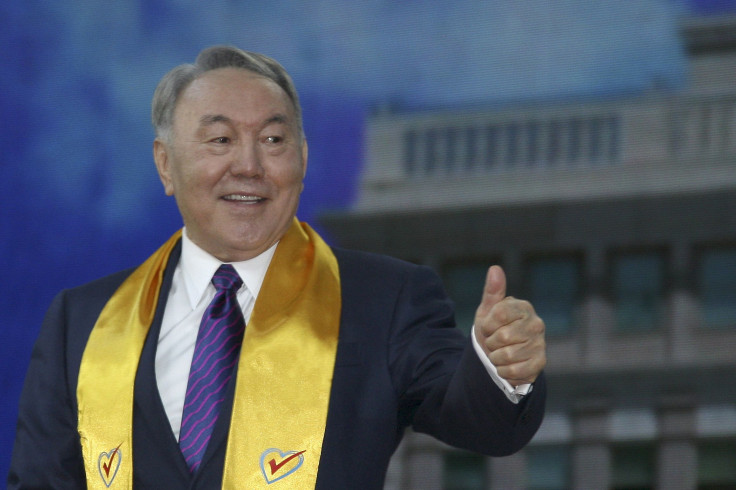Kazakhstan President Nursultan Nazarbayev Reelected With 98% Majority Vote

Kazakhstan’s election ended with President Nursultan Nazarbayev being reelected with an exceptional majority on Monday, securing another five-year term with 97.7 percent of the vote.
The elections also saw a record turnout of 95 percent, according to the Associated Press. Nazarbayev was reelected on a platform of economic stability and growth at a time when the country’s economy is faltering. However, Nazarbayev’s reign has been strongly criticized by Western powers for his record on political and civil freedoms.
"I am sure Kazakhstan's people will vote primarily for the stable development of our state and the improvement of people's lives, as well as the stability of the state and in support of the policies the country has implemented under my leadership," Nazarbayev told reporters as he cast his ballot, the BBC reported.
Last July, a set of judicial and legal reforms was criticized by the United States, the European Union, and international rights groups, for containing “a number of articles that might have a negative impact on freedom of expression, freedom of association and freedom of assembly,” according to an EU statement.
The Organization for Security and Cooperation in Europe (OSCE) issued a statement criticizing the campaign, saying voters had no genuine choice and that Nazarbayev’s two opponents were marginalized by the media.
"The incumbent and his political party dominate politics, and there is a lack of a credible opposition in the country," Cornelia Jonker, head of OSCE’s election observation mission, said in a statement. "There were significant restrictions to the freedom of expression, as well as to the media environment."
However, the election process itself was monitored by over 1,100 observers from the OSCE, the Parliamentary Assembly of the Council of Europe, and other independent observers. Joseph Mifsud, head of the London Academy of Diplomacy, said that the elections “had met all the norms and standards of the European Union," according to Al Jazeera.
Kazakhstan’s constitution limits presidents to two five-year terms, but a 2007 constitutional amendment allowed Nazarbayev to be exempt from term limits, effectively opening the way for the 74-year-old Nazarbayev to rule indefinitely.
Nazarbayev, who has ruled the Central Asian country since 1989, said: "I apologize if these numbers are unacceptable for the super democratic countries but there was nothing I could do," according to a tweet from New York Times reporter Andrew Roth.
Nazarbayev added that the massive show of support in his favor opened the door for him to institute planned reforms, including creating a constitutional reform commission to promote political freedom and economic stability.
Without such mass public confidence, it would be difficult to work on completing the difficult tasks at hand," he said, according to the AP. "The record turnout showed the unity of the people of Kazakhstan and their desire to live in a stable state."
© Copyright IBTimes 2024. All rights reserved.











